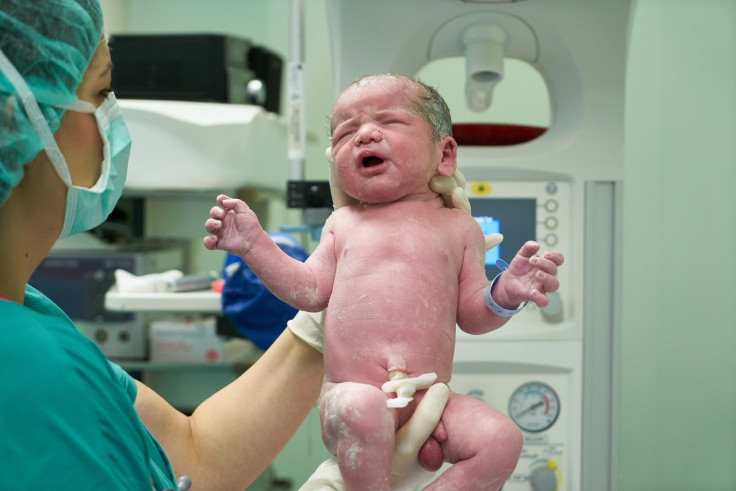What Is Spina Bifida? Baby Girl Born With 2-Inch 'Pseudo-Tail'
In a rare case, a baby girl in Brazil was born with a two-inch "human pseudo-tail" sticking out of her back.
Doctors said they successfully removed the appendage. The child, who is now 3 years old, is doing well with no long-term impact from the procedure.
The girl was born with a roughly 2.36-inch (6 cm) skin-covered soft tissue tail growing on her lower back region, according to a case study published in the Journal of Pediatric Surgery Case Reports. It was because of a condition called spina bifida.
The child's mother had no history of illness and did not use any drugs before her daughter's birth via C-section, NDTV reported.
The baby was "prenatally diagnosed with a midline dermal appendage in the caudal region of the lumbar spine. The neonate was born at term by cesarean delivery, with no maternal history of illness or drug exposure," wrote the authors of the study.
"The physical examination found a 6 cm skin-covered soft tissue tail growing up from the lumbosacral region," they added. "The neonate did not show neurological deficits or other dysmorphias."
Baby #Girl With 6-Centimetre Tail Born In #Brazil pic.twitter.com/JzkpjrvP2G
— Mir Aasif (@miraasif00) February 19, 2023
Spina bifida is a birth abnormality that occurs when the spine and spinal cord do not form properly. It can range from mild to severe. About 1,427 babies in the U.S. are born with spina bifida each year or one in every 2,758 births are found with this condition, according to the Centers for Disease Control and Prevention. It is normally diagnosed before or after birth, and the symptoms can vary depending on the type of defect, size, location and complications.
Doctors treating the Brazilian baby girl found that her condition led to the formation of a gap in her spine, which eventually caused the skin-covered appendage on her back.
They surgically removed the pseudo-tail and also managed other complications that arose following the procedure.
The child is now reportedly healthy and showing no long-term aftereffects.
"The patient is currently 3 years old and undergoing a close long-term follow-up. During this period, she had three episodes of urinary tract infection that were successfully treated with antibiotics," read the study. "No urinary anomalies have been discovered after further work-up. She is currently able to walk and did not develop constipation, neurological deficits, or further complications."

© Copyright IBTimes 2024. All rights reserved.






















